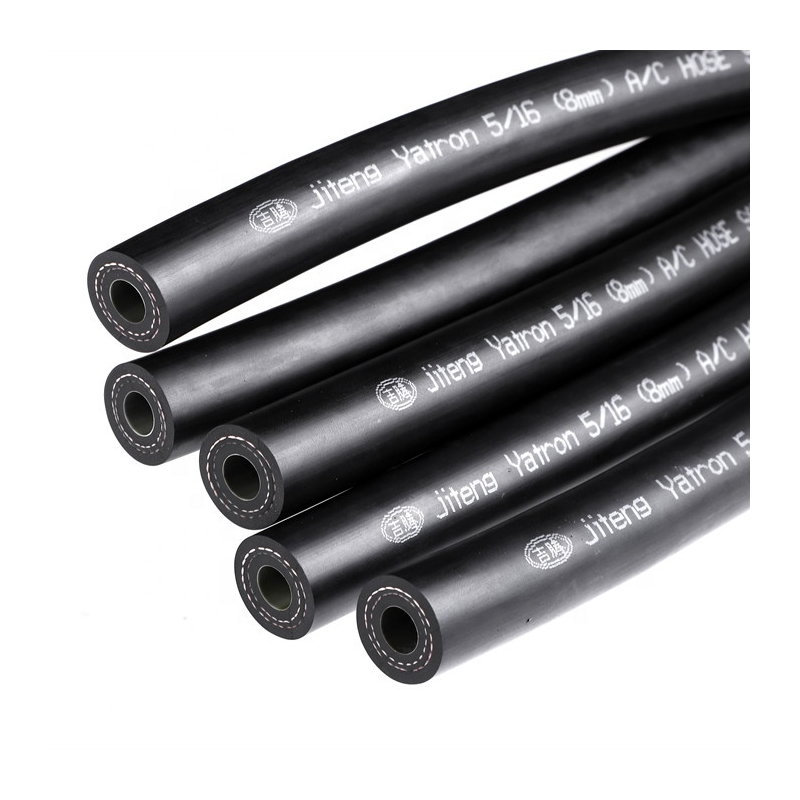rear brake lines
Nov . 23, 2024 11:56 Back to list
rear brake lines
Understanding Rear Brake Lines Importance, Function, and Maintenance
Brake systems are vital for any vehicle's safety, and among the various components that ensure effective braking, rear brake lines play a crucial role. These lines, often overlooked during routine maintenance, are essential for the overall performance of a vehicle's braking system. In this article, we will explore the significance of rear brake lines, their function, common issues, and best practices for maintenance.
The Role of Rear Brake Lines
Rear brake lines are part of the hydraulic brake system that connects the brake calipers or wheel cylinders to the master cylinder. Their primary purpose is to transport brake fluid from the master cylinder to the rear brakes whenever the brake pedal is pressed. This transfer of fluid creates hydraulic pressure, which then forces the brake pads against the rotor or the brake shoes against the drum, enabling the vehicle to slow down or stop effectively.
Importance of Functionality
The functionality of rear brake lines is critical for several reasons
1. Safety Ineffective rear brake lines can lead to reduced braking performance, which can be dangerous. A failure in the brake lines can result in longer stopping distances or even brake failure, posing a significant risk to the driver and other road users.
2. Brake Balance Properly functioning rear brake lines ensure balanced braking performance. If the rear brakes are not receiving sufficient hydraulic pressure, it can lead to an imbalance. This could result in the vehicle swerving during braking, especially under emergency conditions.
3. Performance The responsiveness of the brakes largely depends on the condition of the brake lines. Any blockage, wear, or leakage can compromise the braking efficiency. Thus, maintaining rear brake lines is crucial for optimal vehicle performance.
Common Issues with Rear Brake Lines
Rear brake lines are susceptible to various problems, which can stem from multiple sources
1. Corrosion Brake lines are often made of metal, making them prone to rust and corrosion over time, especially if they are exposed to moisture, salt, or road debris. This corrosion can weaken the lines, leading to leaks and eventual failure.
rear brake lines

2. Cracks and Wear Over time, brake lines can develop cracks or wear due to constant movement and exposure to heat. These imperfections can result in fluid leaks, causing a drop in hydraulic pressure.
3. Contamination If brake fluid becomes contaminated with moisture or other substances, it can lead to deterioration of the brake lines and affect overall brake performance.
4. Improper Installation If brake lines are improperly installed or bent too sharply, it can lead to stress points that may eventually fail.
Maintenance Practices
To ensure rear brake lines remain in good condition, several maintenance practices should be adopted
1. Regular Inspections Periodic checks of the brake lines for signs of wear, corrosion, or leaks are essential. This includes visually inspecting the lines and checking for any fluid buildup around connections.
2. Bleeding the Brakes Regularly bleeding the brakes can help remove any air bubbles that may have accumulated in the lines, ensuring optimal hydraulic pressure.
3. Fluid Replacement Brake fluid should be replaced according to the vehicle manufacturer's recommendations. This helps prevent contamination and provides protection against moisture absorption.
4. Addressing Issues Promptly Any signs of leaks, such as puddles of brake fluid under the vehicle or a soft brake pedal, should be investigated and addressed immediately to prevent further issues.
5. Professional Assistance If you’re unsure about the condition of your rear brake lines, consulting with a qualified mechanic can provide peace of mind. They can perform a thorough inspection and recommend any necessary repairs or replacements.
Conclusion
In summary, rear brake lines are a critical component of a vehicle's braking system that should not be overlooked. They play a vital role in ensuring safety and performance while driving. Regular maintenance and timely repairs can help ensure that your rear brake lines, and thereby your entire braking system, remain in optimal working condition, contributing to safer driving experiences. Always prioritize your vehicle's maintenance, particularly aspects related to safety, to ensure a reliable and enjoyable ride.
